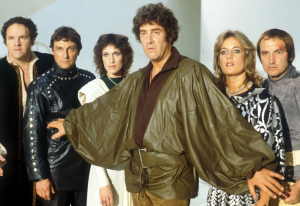If the proverbial poo hits the fan here on Earth, scientists think they may have discovered a habitable planet relatively close—all we’d need to do is hop into a rocket a travel 31 light-years away. In a new entry published in the Astronomy & Astrophysics journal earlier this month, a team at the Max Planck Institute for Astronomy discovered a planet residing in the habitable zone of Wolf 1069, a red dwarf star located in the constellation Cygnus.
Videos by ComicBook.com
The planet—now known as Wolf 1069 b—is roughly the same size as Earth and is neither too hot nor too cold to sustain what we’d consider life. “When we analyzed the data of the star Wolf 1069, we discovered a clear, low-amplitude signal of what appears to be a planet of roughly Earth mass. It orbits the star within 15.6 days at a distance equivalent to one-fifteenth of the separation between the Earth and the Sun,” lead author Diana Kossakowski said of the discovery.
Just because Wolf 1069 b is in the habitable zone doesn’t automatically mean it is capable of sustaining life. It’d need water and other minerals so that life could flourish. Using models built during the study, researchers have found that it’s possible the planet could carry liquid water on a significant section that faces its star, where the temperature could get as warm as 55 degrees Fahrenheit. The planet is also unique in the sense that one half of the body experiences eternal day given it’s constantly facing its star, while the other side of the planet is eternal night.
As it stands now, Wolf 1069 b is the sixth closest exoplanet to Earth and ranks alongside Proxima Centauri. b and the TRAPPIST-1 systems as celestial bodies most likely capable of sustaining life. “We’ll probably have to wait another ten years for this,” Kossakowski added in her statement. “Though it’s crucial we develop our facilities considering most of the closest potentially habitable worlds are detected via the RV method only.”
For additional space and cosmic stories, check out our ComicBook Invasion hub here.








